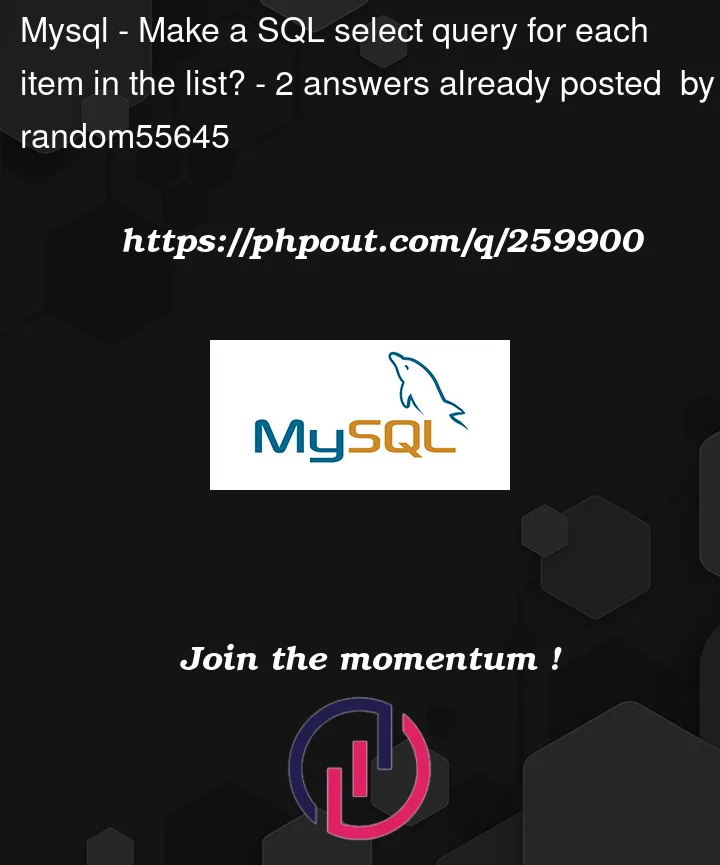Let’s say I have a student table like this:
| ID | Name | Major | Gender |
|---|---|---|---|
| 1 | Alice | Math | F |
| 2 | Bob | Biology | M |
| 3 | Candice | Econ | F |
And I have a list of data like this:
names=["Alice,"Bob","Candice"] majors=["Math","Biology","Econ"] genders="["F","M","F"]
I want to return the first ID that matches all three columns for all entries in
the list
(e.g. SELECT id FROM students WHERE name='Alice' AND major = "Math" AND gender = "F").
Is there a way to get all of the data I need with just one SQL query instead of
having to make a separate query for each item in the list?
SELECT id FROM students WHERE name='Alice' AND major = "Math" AND gender = "F" ;
SELECT id FROM students WHERE name='Bob' AND major = "Biology" AND gender = "M" ;
SELECT id FROM students WHERE name='Candice' AND major = "Econ" AND gender = "F" ;
I can only get the IDs by making three separate queries. I want to combine these into one. I tried using IN, but that only seems to work when you only need 1 column to match. In this case, I need the name, major, and gender to match the entry in the list.




2
Answers
You can put multiple columns in a list that you test with
IN.This can be done in Postgres using UNNEST and CTEs. If you dont want to use an CTE then you can use a subquery instead of a CTE.
In the above I am using
unnestto expand array into a set of rows, using multiple unnest will return a set of rows, each row is a records.Note: Make sure that all the arrays in Unnest contains the same length.
Edit: I didn’t know UNNEST is a postgres only function and mysql doesn’t have this function.